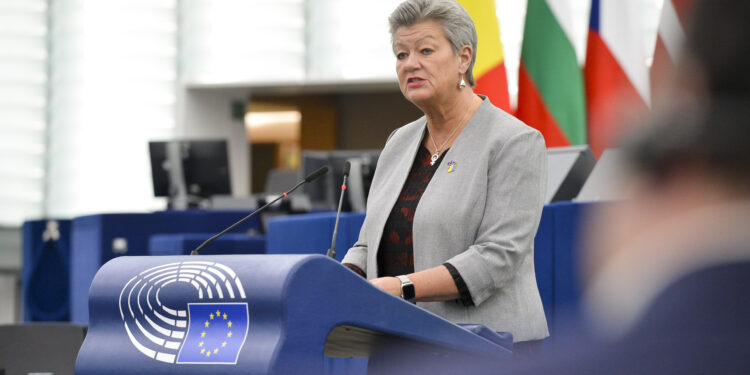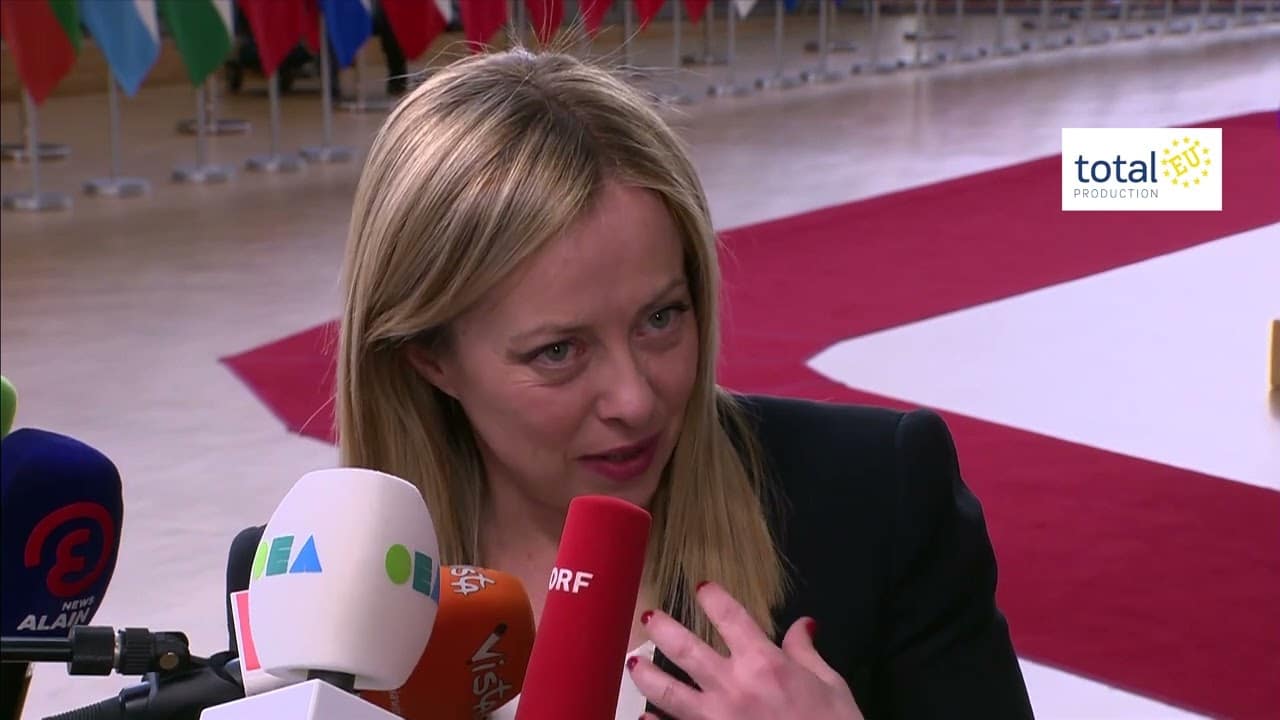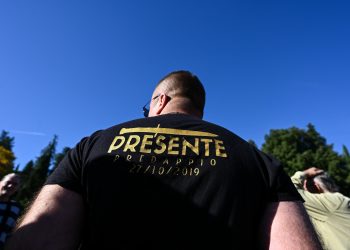Brussels – The EU Commissioner for Home Affairs, Ylva Johansson, makes a timely summary of the tussle at the end of the debate: “It’s good to hear so many speeches against neo-fascism. There are so many who see the risk. We must turn our determination into action.” Mostly Italian interventions, in the convoked debate in the Caesar’s Zone from the European Parliament in Strasbourg on that shameful fascist salute at the commemoration of Acca Larenzia last Jan. 7.
What makes the noise – more than the incident itself – is above all the silence of the Council President, Giorgia Meloni, who has not uttered a word of condemnation. If from the left, socialists, greens and liberals criticism was a given, in view of the alliances towards the European elections in June the distance taken by the European People’s Party stands out. While the more conservative right-wing Identity and Democracy and the European Reformists and Conservatives square off around the Italian government.
Johansson dictated the European Commission’s line: neo-fascism is “an issue,” because “even if minority, those on the margins can be a problem.” And criticism of Meloni comes, although the EU commissioner prefers to avoid a head-on clash. “When we talk about countering neo-fascism, it needs to be timely,” she said in the chamber.
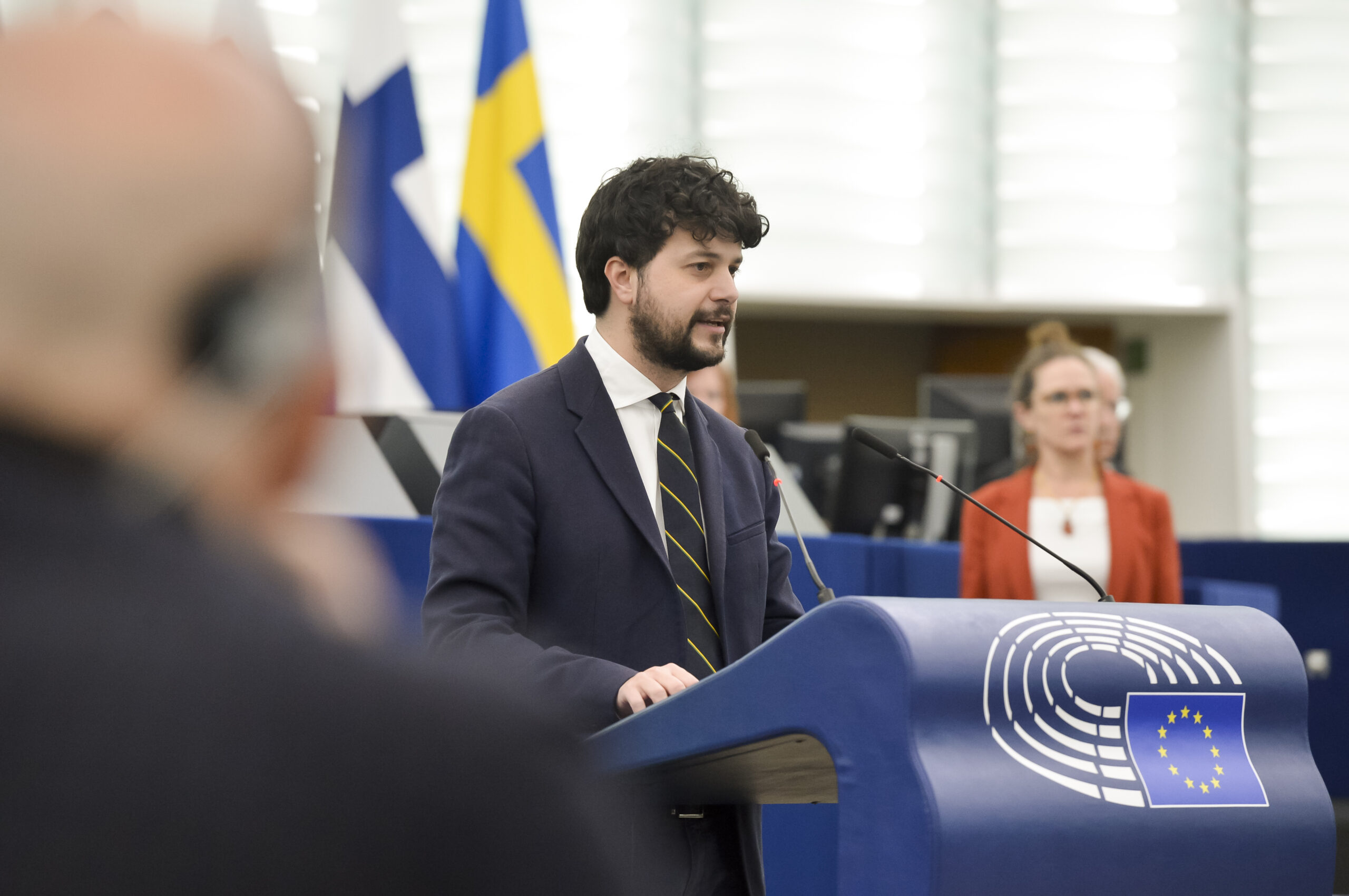
“Neo-fascist organizations must be disbanded and their supporters prosecuted. There can be no tolerance for intolerant people,” said ithe head of the Democratic Party’s delegation in Brussels, Brando Benifei. From Sophie in ‘t Veld, a Renew liberal, the stoccata to the heavyweights of the EPP, Manfred Weber and Ursula von der Leyen: “There has been a significant silence about what happened (on January 7, ed.). Manfred Weber does he think Giorgia Meloni, who refuses to condemn the Roman salute, is a good ally? And will von der Leyen, who will meet Meloni in Forli, call for condemnation?” he asked rhetorically.
If the tête-à-tête between von der Leyen and Meloni will have to wait for oggi pomeriggio, the EPP responded immediately. Slovakian Peter Pollak reiterated the line already expressed by Weber in the aftermath of the incident: “We cannot accept that the Italian government does not deal with it. How is it possible that terrorism is a red line and then we tolerate fascism? Fascists are just as dangerous as terrorists.”
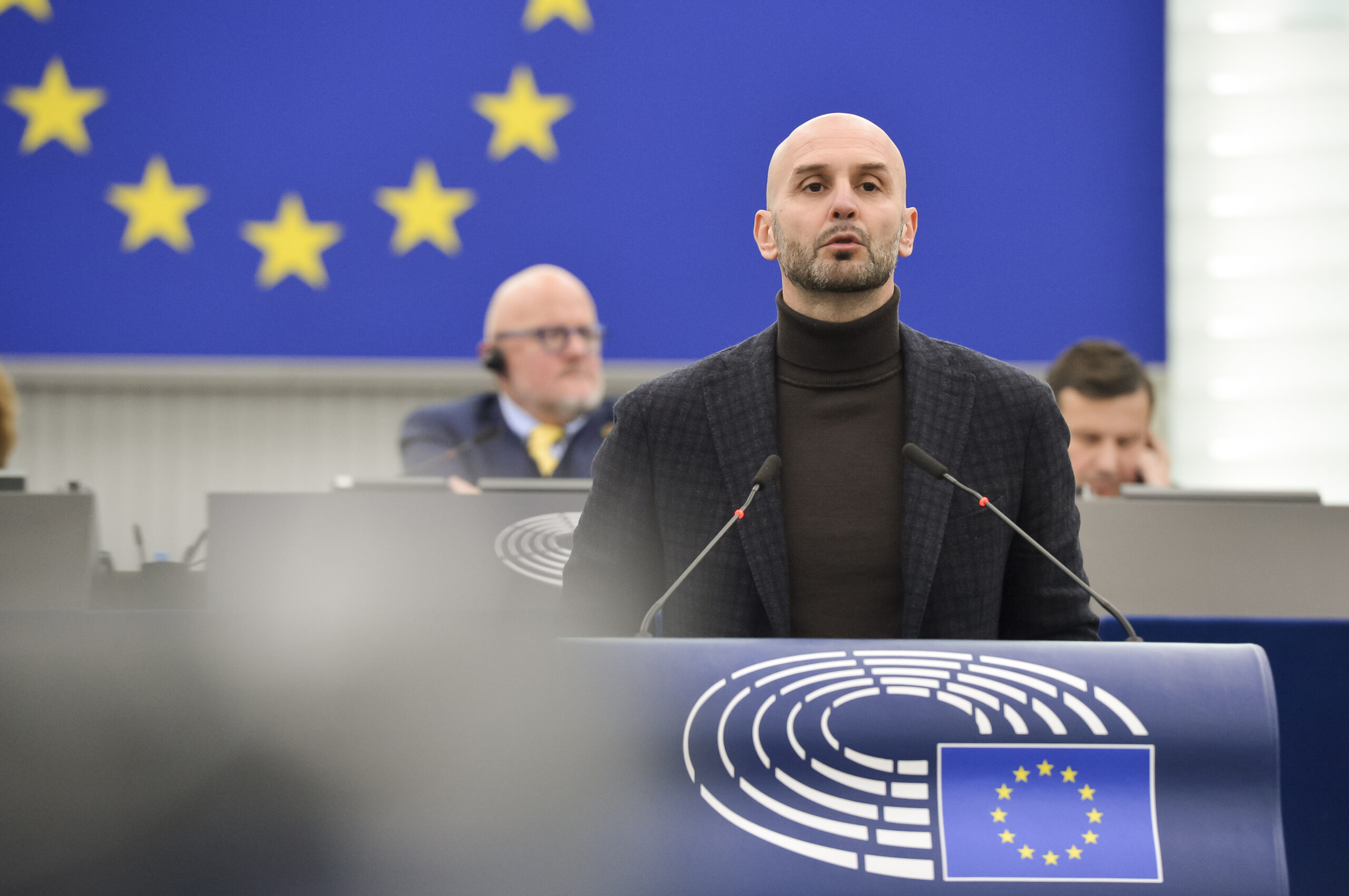
In the very Italian all against all staged in the Strasbourg hemicycle, the right has launched itself on the counterattack. Nicola Procaccini, co-chair of the Ecr group, pointed to the many empty benches in the chamber to show “how this debate is considered important by the left.” No apologia for fascism according to Procaccini: “A commemoration was held in Rome for the victims of communist terrorism, with a few dozen people making an anachronistic gesture.” Carlo Fidanza (Ecr), also tried to turn the affair around: “Today security threats come from leftist militancy and Islamic extremism. Meloni has already condemned.”
From League MEPs, loyalty to fellow government under indictment: “The debate on the fascist threat is not a priority, let’s stop looking for the ghosts of the past,” is the line of Silvia Sardone andPaolo Borchia. While Isabella Tovaglieri managed to point the finger at the European Commission: “In the past the color of fascism was black, today it is green, that of the eco-extremists,” she accused.
English version by the Translation Service of Withub